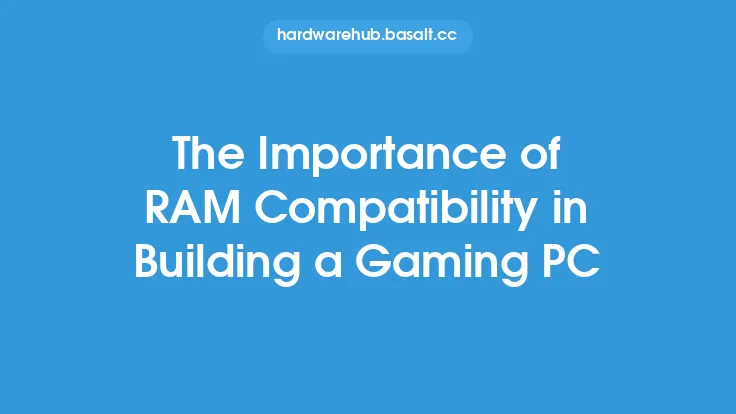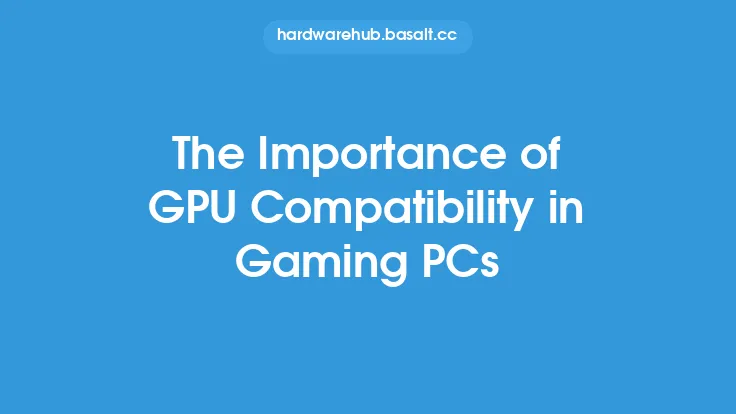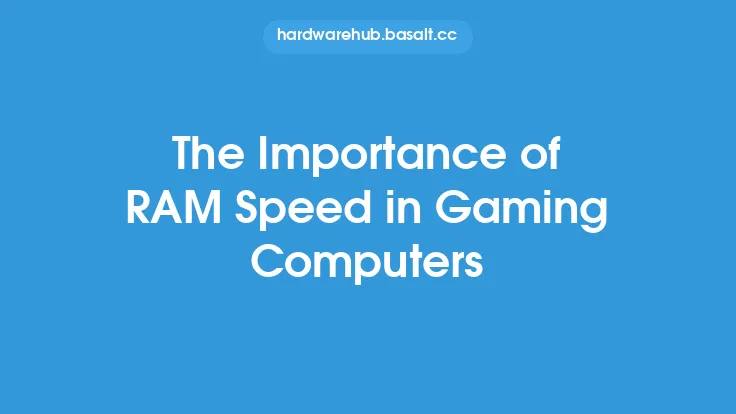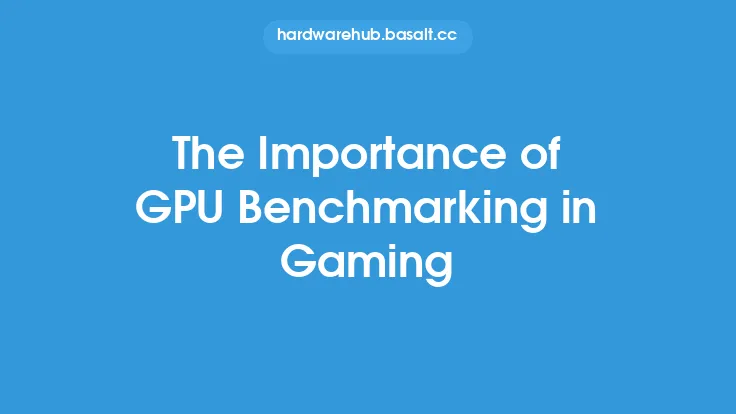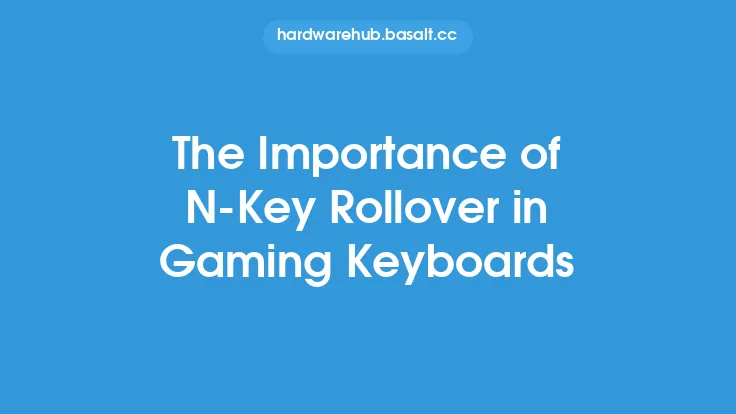When it comes to building or upgrading a gaming PC, one of the most critical components to consider is the RAM capacity. Random Access Memory (RAM) plays a vital role in determining the overall performance of a gaming PC, and having sufficient RAM capacity is essential for a seamless gaming experience. In this article, we will delve into the importance of RAM capacity in gaming PCs, exploring how it affects performance, the benefits of having sufficient RAM, and what to consider when selecting the right RAM capacity for your gaming needs.
What is RAM and How Does it Work?
RAM is a type of computer memory that temporarily stores data and applications while a computer is running. It allows the computer's processor to access data quickly, enabling it to perform tasks efficiently. When a computer runs out of RAM, it uses the hard drive or solid-state drive (SSD) as a substitute, which can significantly slow down performance. In gaming PCs, RAM is particularly important, as games require a large amount of data to be stored in memory to run smoothly.
The Impact of RAM Capacity on Gaming Performance
The RAM capacity of a gaming PC has a direct impact on its performance. Insufficient RAM can lead to slower loading times, reduced frame rates, and increased lag. This is because the computer's processor has to access data from the hard drive or SSD, which is much slower than accessing data from RAM. On the other hand, having sufficient RAM capacity ensures that the computer can handle demanding games and applications with ease, resulting in faster loading times, smoother gameplay, and improved overall performance.
Benefits of Sufficient RAM Capacity
Having sufficient RAM capacity in a gaming PC offers several benefits. Firstly, it enables the computer to handle multiple applications and games simultaneously, making it ideal for multitasking. Secondly, it reduces the likelihood of lag and stuttering, providing a more immersive gaming experience. Thirdly, it allows for smoother gameplay, even at high graphics settings, making it possible to enjoy games at their full potential. Finally, it future-proofs the computer, enabling it to handle upcoming games and applications that may require more RAM.
How Much RAM Capacity is Enough?
The amount of RAM capacity required for a gaming PC depends on several factors, including the type of games played, the graphics settings, and the computer's processor. Generally, a minimum of 16 GB of RAM is recommended for most modern games, while 32 GB or more is recommended for more demanding games and applications. However, it's essential to note that the amount of RAM capacity required can vary depending on the specific needs of the user.
Types of RAM and Their Impact on Gaming Performance
There are several types of RAM available, including DDR3, DDR4, and DDR5. Each type of RAM has its own set of characteristics, including speed, latency, and capacity. DDR4 RAM is currently the most widely used type of RAM in gaming PCs, offering a good balance between speed and capacity. However, DDR5 RAM is emerging as a new standard, offering even faster speeds and lower latency. When selecting RAM for a gaming PC, it's essential to consider the type of RAM, as well as its speed and capacity, to ensure optimal performance.
Dual-Channel and Quad-Channel RAM Configurations
Dual-channel and quad-channel RAM configurations can significantly impact gaming performance. Dual-channel RAM configurations involve using two or more RAM modules of the same capacity and speed, which can improve performance by increasing the bandwidth. Quad-channel RAM configurations involve using four or more RAM modules of the same capacity and speed, which can further improve performance. However, it's essential to note that the benefits of dual-channel and quad-channel RAM configurations depend on the specific hardware and software configuration of the computer.
Overclocking and RAM Capacity
Overclocking can significantly impact RAM capacity and performance. Overclocking involves increasing the speed of the RAM beyond its default settings, which can improve performance. However, overclocking can also increase the risk of system instability and data corruption. When overclocking RAM, it's essential to consider the capacity and speed of the RAM, as well as the computer's cooling system and power supply, to ensure stable and reliable performance.
Conclusion
In conclusion, RAM capacity plays a critical role in determining the performance of a gaming PC. Having sufficient RAM capacity ensures that the computer can handle demanding games and applications with ease, resulting in faster loading times, smoother gameplay, and improved overall performance. When selecting RAM for a gaming PC, it's essential to consider the type of RAM, its speed and capacity, as well as the computer's hardware and software configuration, to ensure optimal performance. By understanding the importance of RAM capacity and selecting the right RAM for your gaming needs, you can enjoy a seamless and immersive gaming experience.
